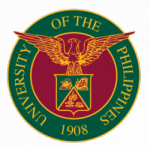This course is designed to provide health managers, administrators, health care providers, human resource personnel, teachers, and other health advocates the basic concepts, principles, and practical skills in strategic management and planning. It intends to highlight the participant’s skills in strategic analysis, particularly the planning aspect of strategic management.
Category: UP Manila
This course will present the various TQM frameworks, concepts, and quality improvement tools necessary for implementing the quality culture needed in health service facilities. Total Quality Management (TQM) is a geared towards complete customer satisfaction. It is both a philosophy and a set of guiding principles that represent the foundation of a continual improvement for health care organizations’ performance. The outcome of TQM is increased productivity, efficiency, customer satisfaction, and quality health care.
This survey helps to identify hazards in the client’s workplace.
In recent years, cost effectiveness analyses have become increasingly important to health care policymakers. This short course on Cost Effectiveness in Health Care consists of a four-day course work that will develop applied skills in cost-effectiveness analysis, with each succeeding day building on the knowledge that have been acquired from the sessions of the previous days.
This short course consists of lectures, workshops, and panel discussions on important topics in dental public health. It is intended to provide a structured learning in dental public health for those in government services, non-government agencies, and those teaching community dentistry.
This service seeks to provide technical expertise on environmental and occupational health through participation in technical working groups, research projects, trainings, seminars and conferences.
These services aim to provide clients with research consultation covering research design, data encoding and cleaning, and data analysis.
This three-day course will focus on the different steps in planning for and conducting health research. The teaching-learning strategies include lectures, workshops, and group discussions. The participants will apply the concepts learned in the course in the development of their individual research proposals. During plenary sessions, participants will present their capsule proposals, which will be critiqued by fellow participants and a facilitator for fine-tuning.
The UP-PGH Department of Rehabilitation Medicine organizes a yearly postgraduate course for physiatrist and paramedical staff. For the past years, themes of the postgraduate course included sports medicine, maximizing rehabilitation outcomes, and latest trends and interventions in rehabilitation medicine.
This training involves developing participants’ skills in the collection and analysis of qualitative data.

